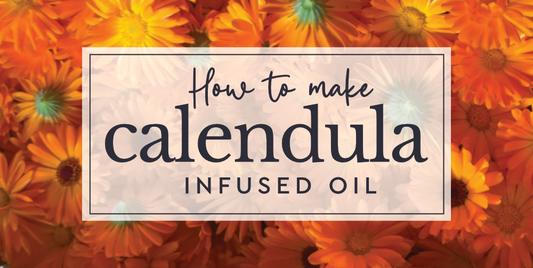
The exact cause of eczema is unknown, but researchers suspect it results from an overactive immune response triggered by irritants. While doctors often prescribe topical steroids, long-term use can have unpleasant side effects. Fortunately, there are many ways to treat eczema naturally and support your skin’s healing.
Here are before and after photos of my son as a baby during the time he battled severe eczema. Finding relief became my mission, and it led me to create a remedy that really worked - you can read The Story Behind the Natural Cream that Soothed my Baby's Eczema here. That chapter became the foundation for the business I run today, helping others find the comfort and relief that we once searched for.
Drawing on my own experience, I’ve put together this guide sharing the 10 best ways I found to treat eczema naturally. These strategies will help you manage eczema symptoms naturally, reduce flare-ups, and find lasting relief. With patience and care, you can nurture your skin back to health.

1. Elimination Diet for Eczema
One way to help treat eczema naturally is to uncover and remove foods that trigger flare-ups. Many people with eczema have sensitivities to common allergens such as dairy, eggs, gluten, soy, nuts, and fish. Highly processed foods—especially those high in sugar, preservatives, artificial additives, and unhealthy fats—can also worsen symptoms, as can alcohol, caffeine, and high-histamine foods.
An elimination diet involves removing potential triggers for 3–6 weeks, then reintroducing them one at a time to see which cause reactions. Keeping a detailed food and symptom diary during this process is vital for spotting patterns.
Focus on fresh, whole foods like fruits, vegetables, whole grains, and omega-3-rich options such as flaxseeds and oily fish. Choosing organic where possible may further reduce irritation. Always seek advice from a healthcare professional before starting an elimination diet—especially for children—to ensure nutritional needs are met.

2. Eczema and Gut Health
Another way to help treat eczema naturally is by improving gut health. The gut microbiome—a community of trillions of bacteria—plays a key role in immunity and inflammation, directly influencing skin health through the “gut-skin axis.” When this balance is disrupted, eczema symptoms can worsen. Overuse of antibiotics is a known trigger, with research from The British Journal of Dermatology showing children given antibiotics in their first year are 40% more likely to develop eczema.
Gut health can also be harmed by chronic stress, poor diet, illness, certain medications, lack of sleep, and even environmental toxins. To restore balance, limit processed foods, sugar, alcohol, and unhealthy fats, and focus on fibre-rich fruits, vegetables, and whole grains. Add probiotics and fermented foods like kefir, kombucha, and sauerkraut, and nourish your gut lining with bone broth. A healthy gut can reduce inflammation and support long-term eczema relief.

3. Drinking Plenty of Water
A simple way to treat eczema naturally is to stay well hydrated. Eczema weakens the skin’s protective barrier, leading to dryness, flakiness, and irritation. Drinking enough water helps replenish moisture from within, supports the skin’s detoxification process, and may reduce itchiness.
Adequate hydration also assists the liver and kidneys in flushing out toxins that can trigger inflammation. If you live in a hard-water area, consider a water softener, as high mineral content may worsen eczema. While water alone isn’t a cure, it’s an essential step in maintaining healthy, resilient skin.

4. Wear Non-Irritating Clothing
Choosing the right fabrics can make a big difference in managing eczema and preventing flare-ups. Soft, breathable materials like cotton, bamboo, or silk allow the skin to breathe, regulate temperature, and reduce overheating. Silk is especially gentle and hypoallergenic, helping to absorb perspiration while staying cool. Avoid rough or heat-trapping fabrics such as wool, polyester, nylon, or spandex, as these can trigger itching and irritation.
Always wash new clothes before wearing, as some are treated with chemicals like formaldehyde. Opt for non-biological laundry powder, as biological formulas contain enzymes and extra chemicals that may aggravate sensitive skin. Fragrance-free detergents are best, and adding an extra rinse cycle will help remove any leftover residue. Loose-fitting clothing is also recommended to reduce friction and irritation, helping your skin stay calm and comfortable throughout the day.

5. Stress and Eczema
Stress can significantly worsen eczema symptoms and trigger flare-ups. When the body is stressed, it produces cortisol, a hormone that can disrupt the balance of friendly gut bacteria and weaken the immune system. This leads to increased skin inflammation and impairs the skin’s ability to heal properly. Stress also affects the skin barrier, making it less effective at protecting against irritants and allergens.
Additionally, stress often leads to more scratching, which damages the skin and creates a vicious itch-scratch cycle. The emotional impact of eczema itself can increase stress, creating a challenging loop to break.
Managing stress is essential for calming eczema symptoms. Simple actions like walking outdoors, spending time in nature, or reading can help ease tension. Deep breathing exercises and grounding yourself in natural surroundings support overall wellbeing. Using distractions and cool compresses can reduce scratching, protecting your skin from further irritation.

6. Avoid Eczema Triggers
Managing eczema effectively involves identifying and avoiding common irritants and allergens that can worsen symptoms.
Common Allergens and Environmental Triggers
Pet dander, dust mites, pollen, and cigarette smoke are frequent eczema triggers. Cigarette smoke contains thousands of harmful chemicals that can inflame the skin and worsen flare-ups. Using air purifiers with HEPA filters can help reduce airborne allergens. Himalayan salt lamps are also said to help cleanse the air by attracting particles.
Irritating Chemicals and Products
Avoid skincare and household products containing parabens and sodium lauryl sulphate. These chemicals can irritate sensitive skin and disrupt the body’s natural balance. Opt for natural, gentle cleansers and non-biological washing powders instead. Also, avoid perfumes with synthetic chemicals; choose natural fragrances to reduce toxin buildup.
Metals and Other Triggers
Certain metals, like nickel, can trigger eczema. Limit high-nickel foods such as nuts, chocolate, and canned goods. Run tap water briefly before use to flush out nickel from plumbing, and avoid stainless steel utensils when cooking acidic foods.
By understanding your personal triggers and making these changes, you can better manage eczema and reduce flare-ups naturally.

7. Baths for Eczema
While frequent bathing can strip moisture and worsen eczema, certain types of baths can actually soothe and support your skin. Mineral-rich baths using Dead Sea salt or Epsom salt help eliminate toxins, boost circulation, and improve skin hydration. Studies show magnesium in these salts enhances the skin’s barrier function, reducing dryness and irritation.
Oat baths are another gentle option, especially useful in hard water areas. Simply place oats in a sock or muslin bag and let the water flow through—this softens the water and calms itchiness and inflammation.
For added relaxation and skin nourishment, try adding a few drops of lavender or chamomile essential oil mixed with a carrier oil to your bath. These oils have calming properties and help lock in moisture as you soak.
Always use lukewarm water, avoid harsh soaps, pat skin dry gently, and apply a natural moisturiser immediately after bathing to seal in hydration and protect sensitive skin.

8. Natural Moisturiser for Dry Skin and Eczema
Using a high-quality, natural moisturiser is essential to support and soothe eczema-prone skin. Eczema reduces the skin’s oil production, weakening its protective barrier and causing moisture loss, dryness, and flaking. A good moisturiser helps lock in hydration, protecting the skin from further irritation.
Look for products rich in natural ingredients like plant extracts, herbs, essential oils, and nourishing plant oils. Calendula (marigold) is especially effective, with proven anti-inflammatory properties that soothe itchiness and help boost collagen and elastin for skin repair. Beeswax strengthens the skin barrier, locks in moisture, and shields against irritants.
For gentle yet powerful care, try our Calendula and Borage Soothe & Repair Cream. This carefully crafted formula blends over 20 natural ingredients, including calendula, borage oil, shea butter, rosehip oil, chamomile, lavender, and colloidal silver to soothe flare-ups, heal cracked skin, and prevent dryness and itchiness. Applying this cream twice daily is one of the most effective ways to treat eczema naturally and nurture your skin back to health.

9. Wet Wraps for Eczema
Wet wrap therapy involves applying damp fabric over eczema-affected skin after bathing and moisturizing. This technique helps rehydrate dry, itchy skin by creating a moist environment that soothes irritation and reduces the urge to scratch, breaking the itch-scratch cycle.
Wet wraps can also enhance the absorption of topical treatments, improving their effectiveness. Typically, a wet inner layer is covered with a dry outer layer to protect the skin and promote healing.
Wet wraps are especially useful during flare-ups or severe eczema and should be used under healthcare guidance. Adding plant extracts to wraps can provide extra calming benefits.

10. Colloidal Silver for Eczema
Colloidal silver is a suspension of tiny silver particles in pure water. Silver has natural antimicrobial properties that help eliminate bacteria and yeasts while being gentle and safe for multi-celled organisms like skin. Historically valued as a natural antibiotic and skin healer, colloidal silver continues to be used in medical settings—such as burn units—for its ability to support skin healing and prevent infections. In eczema care, colloidal silver can help manage secondary skin infections that often accompany flare-ups, promoting faster recovery and improving overall skin condition. For targeted relief, gently mist affected areas with colloidal silver.
Did you know? Our Calendula Soothe & Repair Cream includes colloidal silver, combining its soothing and protective powers with nourishing botanicals to calm irritation and aid skin recovery—making it especially beneficial for eczema-prone skin.
By incorporating these 10 natural strategies, you can treat eczema naturally. Through mindful diet, gut health, hydration, clothing choices, stress reduction, avoiding triggers, medicinal baths, moisturising, wet wraps, and natural antimicrobials like colloidal silver, you empower your skin to heal and strengthen its barrier. While eczema varies from person to person, these approaches help you manage eczema symptoms naturally, reduce eczema flare-ups naturally, and embrace natural remedies for long-term eczema relief. Stay patient, consistent, and seek professional guidance when needed on your journey to healthier skin.
Disclaimer: These statements and products have not been evaluated by the FDA. They are not intended to diagnose, treat, cure, or prevent any disease or condition. If you have a health concern or are looking to modify your diet, consult your doctor.





